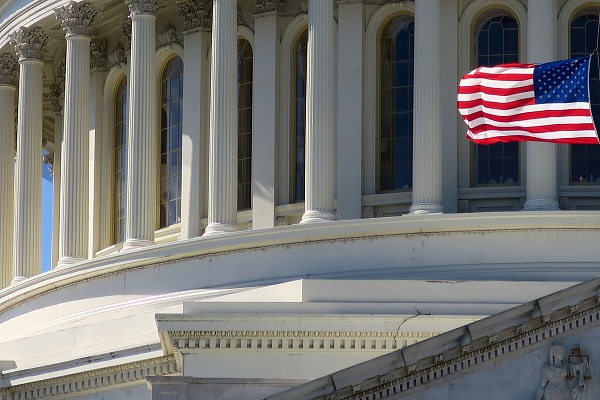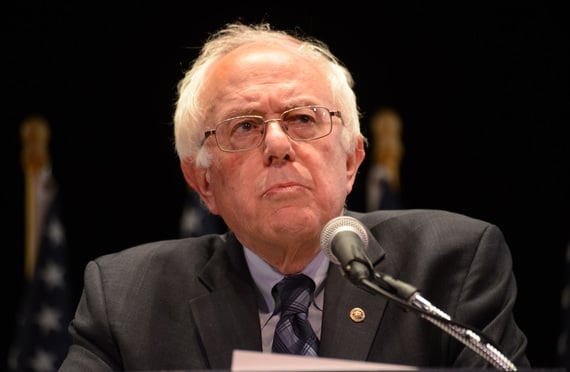 DrugmakersAbbVie, AstraZeneca, Bristol-Myers Squibb, Johnson & Johnson,Merck, Pfizer and Sanofi appeared before the Senate FinanceCommittee as lawmakers mull how to best control rising drug prices.(Photo: Mike Scarcella/ALM)
DrugmakersAbbVie, AstraZeneca, Bristol-Myers Squibb, Johnson & Johnson,Merck, Pfizer and Sanofi appeared before the Senate FinanceCommittee as lawmakers mull how to best control rising drug prices.(Photo: Mike Scarcella/ALM)
Senators got their first opportunity Tuesday to prod drugmakers about the wallet-emptyingprices they charge for prescription drugs.
|Almost in unison, the executives expressed support for eliminating rebates that flow to industrymiddlemen instead of patients; for increasing transparency abouthow they set prices; for shifting to a more value-based pricingsystem, in which outcomes are rewarded. Together they demurred whenasked to commit to lowering list prices on drugs like insulin andthe blockbuster rheumatoid arthritis drug Humira.
|Related: Class-action suit over insulin prices gets greenlight
|The drugmakers — AbbVie, AstraZeneca, Bristol-Myers Squibb,Johnson & Johnson, Merck, Pfizer and Sanofi — appeared beforethe Senate Finance Committee as lawmakers mull how to best controlrising drug prices. Several declined the committee's firstinvitation to testify last month, agreeing to appear aftercommittee leaders publicly named them prior to Tuesday'shearing.
|Outlining the problem, Sen. Ron Wyden of Oregon, the committee'stop Democrat, said that last fall 10 companies accounted for halfof all profits in the health care sector, nine of them drugmakers.He pointed out that all but one of the drugmakers representedTuesday were among the top 10 profit-makers.
|“Your profits are outsized compared to others in the industry,you get a massive portion of your revenue from American taxpayers,and you bear none of the consequences of high drug prices,” Wydensaid.
|Sen. Chuck Grassley of Iowa, the committee's Republicanchairman, emphasized the seriousness of the hearing, opening withan unusual reminder to the executives that it is a crime to lie toCongress and pressing them to commit to lowering prices.
|Even Sen. Johnny Isakson of Georgia, a Republican who praisedthe industry for discovering lifesaving drugs — like the ones thathelp him live with Parkinson's disease — expressed reservations.“When I can't explain it, it's tough, and I can't explain the costincreases,” he said.
|Congress has spent decades trying to contain rising drug prices,leaving some skeptical that even broad bipartisan support and thebacking of the Trump administration is enough to wrangle the deeppockets of the pharmaceutical industry.
|But Tuesday's hearing offered some sense of what drugmakeropposition — or support — might look like. Here are fivekey takeaways:
|1. Targeting rebates And PBMs
Each of the seven executives said they support eliminatingrebates, or discounts negotiated by pharmacy benefit managers thatlower the cost of drugs for those footing the bill — generally,insurance companies or larger employers. PBMs keep a portion of therebate as payment, but patients are often the only ones who don'tbenefit.
|Yet, when asked about the Trump administration's recent proposalto strip PBMs of their ability to claim rebates for brand-namedrugs covered by government programs, not a single executive wouldcommit to lowering list prices should the proposal be realized.
|Drugmakers have long blamed PBMs for driving up costs, and —though they seemed to tone down their accusations after senatorsmade it clear they would not tolerate finger-pointing — theseexecutives were no exception.
|Jennifer Taubert, the executive vice president and worldwidechairman of pharmaceuticals for Johnson & Johnson, called PBMs“extraordinarily effective negotiators.” Albert Bourla, who becamethe chief executive of Pfizer last month, said the company sets itsprices “through negotiations with PBMs, and they are verypowerful.” And Pascal Soriot, the chief executive of AstraZeneca,said the rebate system is “not sustainable.”
|They were met with some notable skepticism. Wyden pointed outthat about 40 percent of drugs covered under Medicare Part D don'thave a rebate, challenging the idea that rebates are at the heartof the problem. And PBMs, who weren't in the room, pushed backagainst the blame.
|“Drugmakers alone have the power to set prices,” JC Scott, thepresident and chief executive of the Pharmaceutical Care ManagementAssociation, the national trade organization for PBMs, said in astatement.
|2. Debating list prices
Wyden had little patience for the executives' emphasis onrebates, which he dismissed as “window dressing.” He wasunequivocal: List prices set by the drugmakers are the realproblem.
|“I just want you all to know that the No. 1 reason consumers aregetting hammered is because these list prices … are unaffordable,”Wyden said.
|While the pharmaceutical industry is prone to dismissing listprices, because relatively few pay them after rebates and otherdiscounts are applied, those prices are used to calculatecopayments for some — such as seniors using Medicare Part D.
|Kenneth Frazier, the chairman and chief executive of Merck,called the system “regressive,” lamenting that it is typicallythose without insurance who pay list prices.
|“The biggest problem we have as a country is we have a systemwhere the sickest and the poorest are subsidizing the others,”Frazier said.
|Grassley and Wyden each pressed executives to commit to loweringlist prices, especially if the Trump administration passes itsproposal to eliminate rebates in government programs like Medicareand Medicaid.
|Executives balked, with some saying rebates would first need tobe eliminated from the entire system, not just governmentprograms.
|“If the rebates were removed from the commercial sector as well,we would definitely reduce our list prices,” said Soriot ofAstraZeneca.
|The pharma executives did express support both for the vaguenotion of increasing transparency about how drugmakers set prices,and for shifting to a more value-based pricing system. “Imagine asystem in which Pfizer gets paid based on the number of heartattacks we prevent” rather than the number of pills sold, saidBourla of Pfizer.
|3. Applauding the CREATES Act
All seven executives pledged support for the CREATES Act, which is designed to stop what Food and DrugAdministration chief Scott Gottlieb calls “shenanigans” perpetratedby brand-name companies to block competition. Pharma firms oftenrefuse to supply makers of generics with needed samples to developrival, less expensive products or abuse safety rules as another wayof hindering competition.
|Alleged culprits include companies represented Tuesday. TheFDA's “name and shame” list of those withholding samples, a list originally published last year, included AstraZeneca,Pfizer, Johnson & Johnson's Actelion division and Celgene,which has agreed to be bought by Bristol-Myers.
|The unanimous support for CREATES seems to put the executivesopposite their own trade group, the Pharmaceutical Research andManufacturers of America, which has staunchly opposed the bill andspent millions of dollars last year lobbying on it.
|On Tuesday, PhRMA CEO Stephen Ubl said the group is working withgenerics manufacturers “to jointly develop a modified version” ofCREATES and would “work with policymakers on a bipartisan basis toadvance this legislation.”
4. Flap over prices overseas
Senators hammered executives on price disparities between theUnited States and elsewhere, extracting admissions that thecompanies make money even in markets where prices are muchlower.
|“How is that not gouging the American consumer with high priceseven though you're giving other people, Western, industrializedcountries, a better deal?” Wyden asked Richard Gonzalez, AbbVie'sCEO.
|“I think that you charge more here because you can, and Americantaxpayers are subsidizing all of you to be able to have incrediblyhigh profits,” said Sen. Debbie Stabenow, a Michigan Democrat.
|Pharma bosses responded by saying that terms vary by market.Research and patient access could be threatened by over-regulationof U.S. prices, they said.
|The result of lower prices in Europe is that “these medicinesare available many years later than they are here,” Frazier said. “They actually provide very few of thesemedicines early on to their populations.”
|5. Friction over patents
AbbVie, the maker of the top-selling rheumatoid arthritis drugHumira, came under especially intense — and notably bipartisan —scrutiny for its use of patents to thwart competition.
|Wyden accused AbbVie of clinging to its exclusivity “like Gollumwith his ring,” preventing lower-cost generics from coming tomarket and easing the burden on patients' wallets.
|Gonzalez said Humira's multiple patents covered its differentuses as they were identified. “Remember, Humira is like ninedifferent drugs, 10 different drugs,” he said, referring to thefact that the drug is used to treat other diseases, such as Crohn'sdisease.
|Sen. John Cornyn (R-Texas) was incredulous, pointing to the decades-long grip AbbVie hason Humira since it secured multiple patents on the drug withoutmaking changes to it, as well as the drugmaker's lawsuit to blockanother company, Amgen, from creating a cheaper, biosimilarversion. (AbbVie ultimately settled, agreeing Amgen could releaseits version in 2023.)
|Perhaps the Senate Judiciary Committee should also investigateAbbVie as a matter of anti-competitive behavior, Cornyn said,turning to Grassley, who is also on that committee. Grassleyagreed.
|Kaiser HealthNews (KHN) is a national health policy news service. It is aneditorially independent program of the Henry J. Kaiser Family Foundation whichis not affiliated with Kaiser Permanente.
|Read more:
Complete your profile to continue reading and get FREE access to BenefitsPRO, part of your ALM digital membership.
Your access to unlimited BenefitsPRO content isn’t changing.
Once you are an ALM digital member, you’ll receive:
- Critical BenefitsPRO information including cutting edge post-reform success strategies, access to educational webcasts and videos, resources from industry leaders, and informative Newsletters.
- Exclusive discounts on ALM, BenefitsPRO magazine and BenefitsPRO.com events
- Access to other award-winning ALM websites including ThinkAdvisor.com and Law.com
Already have an account? Sign In
© 2024 ALM Global, LLC, All Rights Reserved. Request academic re-use from www.copyright.com. All other uses, submit a request to [email protected]. For more information visit Asset & Logo Licensing.







